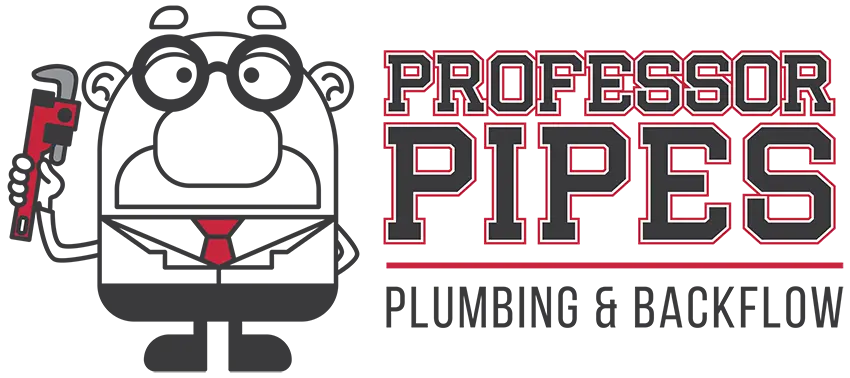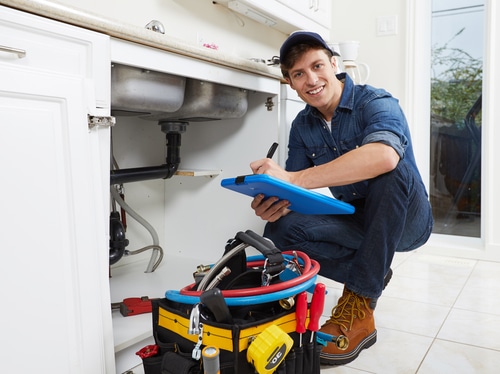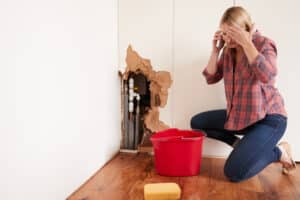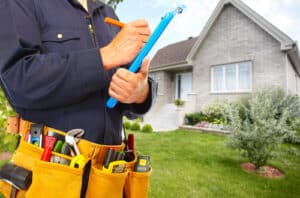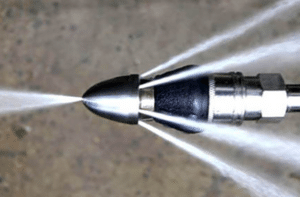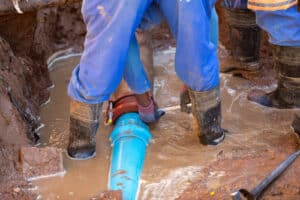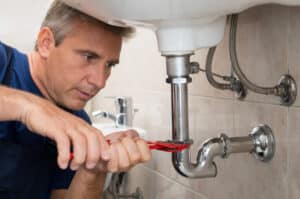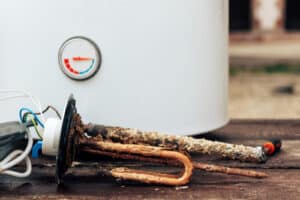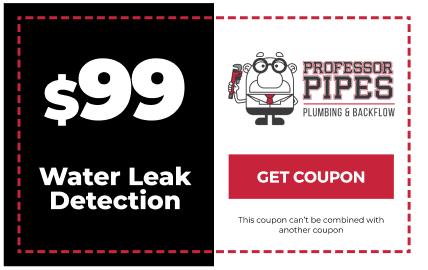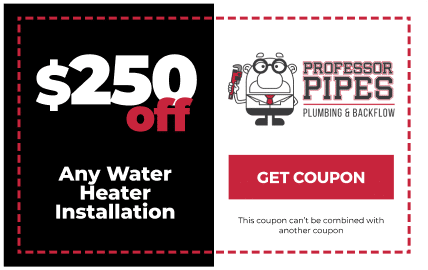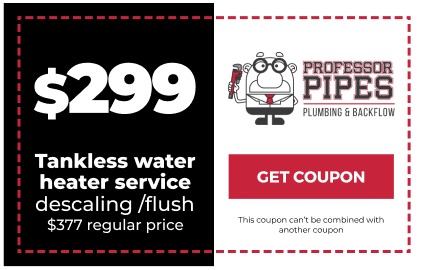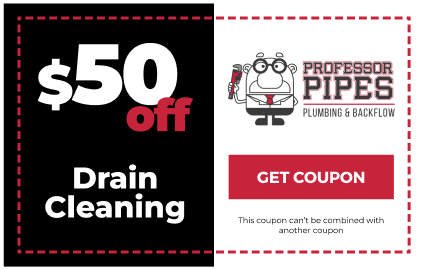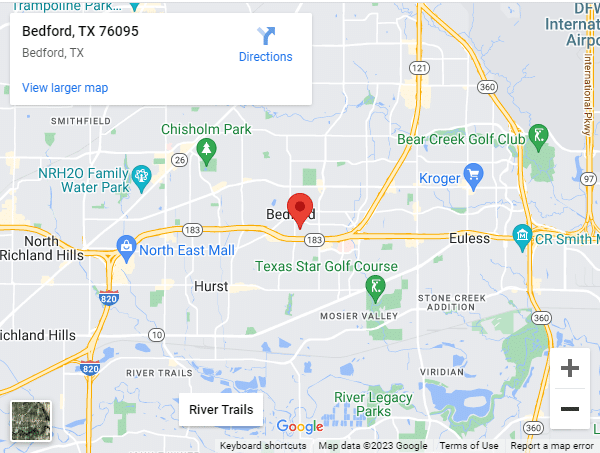Proper plumbing maintenance is vital to extending the lifespan of your home’s plumbing system and preventing costly repairs down the road. A well-maintained system can save homeowners both time and money by avoiding the need for extensive and often expensive emergency repairs.
Regularly inspecting your plumbing fixtures, water heater, and sewer lines for issues not only ensures that small problems are caught before they escalate into significant repairs, but it also maintains the efficiency of your plumbing system. Establishing a routine for plumbing maintenance can lead to improved water pressure, reduced water bills, and a more reliable home plumbing system overall. Additionally, a well-maintained plumbing system can help boost your home’s curb appeal and increase property value.
In this comprehensive guide, we will share essential plumbing maintenance tips and best practices provided by the expert team at Professor Pipes Plumbing & Backflow to help you keep your home’s plumbing in top working condition. Join us as we explore essential plumbing maintenance tips that will ultimately help you save money, contribute to a more sustainable household, and ensure a long-lasting, fully functional plumbing system for your home.
Essential Plumbing Maintenance Tips to Prevent Costly Repairs
Regular Leak Inspections
Detecting and repairing leaks promptly can prevent wasted water and potential damage to your home. Here are essential tips for conducting regular leak inspections:
1. Check Faucets and Fixtures
Inspect faucets, showerheads, and other plumbing fixtures for leaks. Look for moisture around the base, and listen for any dripping sounds. Repair or replace damaged fixtures as needed.
2. Examine Pipes and Pipe Joints
Check exposed pipes for moisture, corrosion, or signs of damage. Inspect pipe joints for water leaks and ensure they are tightened or sealed appropriately.
3. Monitor Water Bill
An unexpected increase in your water bill may indicate a hidden leak within your home’s plumbing system. If you notice a sudden spike, it’s crucial to investigate and address the issue promptly.
Routine Drain Maintenance
Regular drain maintenance can help prevent clogs, slow drains, and foul odors. Follow these practical steps to maintain your home’s drains:
1. Use Drain Screens
Install drain screens on your sinks, tubs, and showers to catch hair, debris, and other potential blockages before they enter the drain.
2. Avoid Pouring Grease or Oil Down Drains
Grease, oil, and other fats can solidify in your pipes and cause clogs. Instead of pouring them down the drain, collect them in a container and dispose of them properly.
3. Perform Monthly Drain Cleanings
Flush your drains monthly with hot water to help clear away soap scum, hair, and other buildups. For a more thorough cleaning, use a non-caustic drain cleaner or opt for natural alternatives like baking soda and vinegar.
Water Heater Maintenance
Maintaining your water heater can prolong its lifespan and ensure it operates efficiently. Follow these tips for optimal water heater performance:
1. Schedule Annual Inspections
Arrange for a professional plumber to inspect your water heater annually to detect and address any issues, such as leaks, corrosion, or sediment buildup.
2. Drain and Flush the Tank
At least once a year, drain and flush your water heater’s tank to remove sediment buildup. This process can improve the heater’s efficiency and prolong its lifespan.
3. Adjust the Temperature
Setting your water heater’s temperature to 120°F can conserve energy, lower your utility bills, and reduce the risk of scalding accidents.
Sewer Line Maintenance
Proper sewer line maintenance can help prevent clogs, backups, and potential damage to your property. Implement these sewer line maintenance practices:
1. Schedule Regular Sewer Line Inspections
Arrange for a professional plumber to inspect your sewer line at least once every two years to detect and address any issues, such as tree root intrusions, corrosion, or misaligned pipes.
2. Dispose of Waste Properly
Avoid flushing anything other than toilet paper and human waste down your toilet, and refrain from pouring grease, oil, or other damaging substances down your drains.
3. Install a Backwater Valve
A backwater valve prevents sewage from flowing back into your home during heavy rains or sewer system backups. Installing one can protect your property from potential damage.
General Plumbing Maintenance Tips
In addition to addressing specific components of your home’s plumbing system, adhere to these general maintenance tips:
1. Know Your Plumbing System
Familiarize yourself with your home’s plumbing system, including the location of the main water shut-off valve, to respond quickly and effectively to emergencies.
2. Insulate Pipes
Insulating exposed pipes can prevent them from freezing and bursting during cold weather, saving you from potential flooding and costly repairs.
3. Schedule Professional Inspections
Arranging for an annual plumbing inspection by a licensed professional can help identify and address any potential issues before they become costly repairs. Professional plumbers have the tools, knowledge, and experience to spot problems that homeowners may miss.
Conclusion
By following these essential plumbing maintenance tips, homeowners can prevent costly repairs, prolong the life of their plumbing systems, and enjoy the peace of mind that comes with a fully functional and reliable home plumbing system. While many of these tasks can be completed by homeowners themselves, it’s important to recognize when professional assistance is needed for more complex issues, inspections, or maintenance tasks.
At Professor Pipes Plumbing & Backflow, our team of top-rated plumbers is dedicated to helping you maintain your home’s plumbing system in Bedford, TX, and surrounding areas. With our exceptional service and expert advice, you’ll have the support and guidance you need to keep your plumbing system operating at its best for years to come. Schedule a service appointment today to discuss your plumbing maintenance needs with our skilled technicians.
